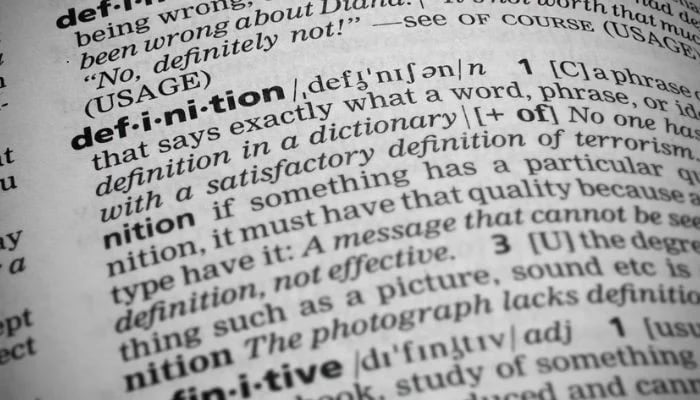
Do you feel a deep bond with pop stars like Taylor Swift or Lily Allen, even if you’ve never met them?
If you do, then your behavior is “parasocial” and trendy according to the Cambridge Dictionary, which on Tuesday unveiled the adjective as its word of the year for 2025.
Lexicographers chose it in a year they said was marked by interest in the one-sided parasocial relationships people form with celebrities, influencers and AI chatbots.
Parasocial is defined as “involving or relating to a connection someone feels between themselves and a famous person they do not know.”
The term dates back to 1956, when two sociologists at the University of Chicago noticed that viewers developed parasocial relationships with television personalities, whom they viewed in the same way as close friends or family.
As artificial intelligence becomes an increasingly important part of people’s lives, “junk,” which is receiving an updated definition, refers to the low-quality AI-generated content flooding the Internet.
Meanwhile, new entrants to the Cambridge Dictionary include “skibidi”, “delulu” and “tradwife”.
The three were among “6,212 new words, phrases and meanings” included in the online dictionary over the past 12 months, it said.
The dictionary only adds words that are believed to have “staying power,” according to one of its lexicographers, Colin McIntosh.
“Internet culture is changing the English language and the effect is fascinating to observe and capture in the dictionary,” he said.
The slang term “skibidi” is described as having different meanings, such as cool or bad.
But it can also be used with no real meaning or as a joke, or in phrases like: “What the hell are you doing?”
“Delulu” is said to be a pun on the word delusional.
“Tradwife” is short for traditional wife, meaning “married woman, especially one who posts on social media, who stays at home cooking and cleaning.”
Simone Schnall, professor of experimental social psychology at the University of Cambridge, praised parasocial as an “inspired” choice.
“We have entered an era where many people form intense and unhealthy parasocial relationships with influential people.
“Parasocial tendencies take on a new dimension as many people treat AI tools like ChatGPT as ‘friends,’ offering positive affirmations or as substitutes for therapy,” he added.



